News
How World Bank, others, cancelled Nigeria’s $30bn foreign debt under my watch – Obasanjo
Published
5 years agoon
By
Olu Emmanuel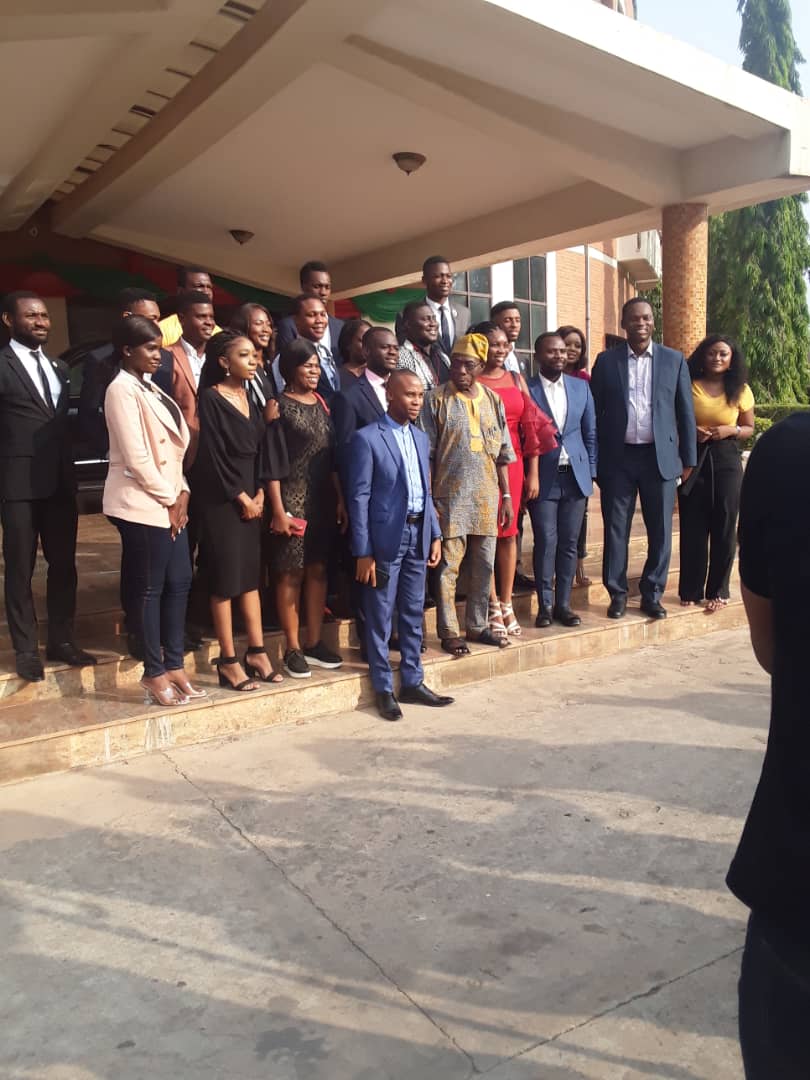
Former President Olusegun Obasanjo in continuation of interaction with 2020 Future African Leaders Awards (FALA), winner, an intervention capacity building project of the Pastor Dr. Chris Oyakhilome Foundation International, of the Loveworld Incorporated, at the Olusegun Obasanjo Presidential Library (OOPL), Abeokuta, Ogun State, narrated the diplomatic relations he adopted in achieving the cancellation of Nigeria’s foreign debts when he was in office. One of the FALA recipient had asked that former Nigerian President the strategy he used to achieve the debt cancellation of $18 billion by the World Bank which leaders of other African countries would need to learn from.
Dr. Obasanjo said that he was disturbed by the high amount of fund devoted to debt servicing every year by the Nigerian government when he assumed office in 1999. The former president decried while huge funds were spent on debt servicing, the loan principal was not paid and still accumulating. He, therefore, approached the World Bank team for intervention.
According to Obasanjo, “when I took over, I found that we were spending $3.5 million to service debts, that is only servicing, the quantum of debt was not paid, only interests and all that.
“And I found that very embarrassing. “So, I said to them, will you help us; and they said if you want us to help you, why not.
“And they said we will write good report about of what you are doing. I started going round, and they said to me, oh, you have a good case.
“In the first year, nothing was done. And I went to them, you said you will help me, when will you help me. So, they said if you are doing well, we will help you; if you are doing well, we will write good report on you.”
Obasanjo pointed out that then, the people who make things happen are the ministers and the directors general, noting that he cannot engage these people. He needed an experienced minister to be engaging the ministers and directors general in foreign countries while he was negotiating with heads of government.
Obasanjo said he requested the World Bank to give him one of their own to work with the Nigerian government. That was how Dr. Ngozi Okonjo-Iweala, was released to be Nigeria’s finance minister. Dr. Obasanjo also negotiated the payment, at least part, of Okonjo-Iweala’s salary by the World Bank.
Obasanjo maintained: “But I can’t talk to these people. So, I was looking for somebody who can talk to them. I went for Ngozi Okonjo-Iweala. But we had no money to pay her.
“I said you have to give me your own and I want you to be paying her salary. “They said what post do you want to give her. If it is a technical work, we will pay her salary; if it is a political work, you will have to pay her salary.” Then, Ngozi was offered the Minister of Finance which was a technical appointment by the World Bank assessment.
“Ngozi had four children in International Business School (IBS). We cannot afford to pay Ngozi and be paying for her children education. They said put $100,000 in our account and we will match it with our own $100,000 in the account.”
Obasanjo, then, assigned the Finance Minister to be talking with ministers and directors general while he was talking to presidents and prime ministers whenever they were in foreign tour.
According to the former President: “so, I brought Ngozi; and I said while I am talking to presidents and prime ministers, you will be talking to ministers and directors general.
“When in France, while I was talking to Chirac, I said to Ngozi, engage his ministers, he will instruct the ministers what to do.
“We were talking, and engaging Britain until Britain decided to champion our cause. I thank Tony Blair and Gordon Brown for their roles in the Nigeria’s debt cancellation negotiations.”
Of the $30 billion foreign debt, Nigeria paid $12 billion while the creditors wrote off $18 billion.
Dr. Obasanjo said that three presidents in Africa came to him to ask for how he secured the cancellation of Nigeria’s foreign debts.
Another FALA recipient reflecting on the record in the presidential library indicating that former President Obasanjo has traveled to over 21 countries, covering kilometres that can take him to the moon and come back, asked how the former president managed his time, domestic and foreign policies.
Dr. Obasanjo said he preferred dealing with the other leaders on face-to-face basis than through correspondence. “Why write letter to a person you can relate with face to face. He will just nicely write you and say no. so, I like dealing with you directly,” the former President said.
He narrated that before he became President, a person in the United Kingdom (UK) looted 3 million pounds from Nigeria and deposited the money in a UK bank. He led a team that requested for the return of the fund, even went to court but the UK government refused to return the money. Then, he approached Prime Minister Tony Blair in person, and after their discussion, the money was returned to the Nigerian government the following day.
Dr. Obasanjo narrated: “A man had Nigeria’s 3 million Pounds in UK bank. We requested for the money because it was Nigeria’s money, but they were not willing to return the Nigerian money.
“I went to Tony Blair, the British Prime Minister, and told him that the person that steals palm oil is a thief; and the person that helps to clean the floor so the oil stain will not be seen, is a thief. “Then, I told him our 3 million pounds is in UK bank stolen by a person and the British government keeping the money is not willing to return it. The following day, the money was returned.”
The former President, therefore, declared: “So, I preferred dealing on face-to-face diplomacy, it worked.”
The former President said he works round the clock and could call anybody anytime.
“I work any time of the day. I can call the honourable minister at 1.00am and say I apologise for the disturbance of waking you up this late, it doesn’t come from my mind; but tell him I want him to do something and he will do it,” he said.
Dr. Obasanjo said that managing domestic policy is not a problem.
You may like
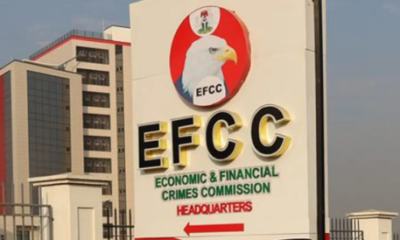

OOPL accuses alleged EFCC operatives of violent invasion, rights Violations


Ajibade shines as Super Falcons defeat Cameroon in friendly clash
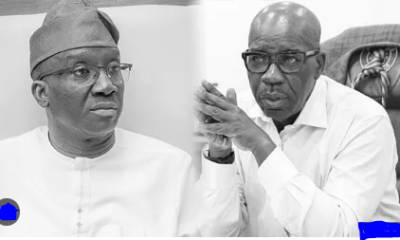

Obaseki slams Okpebholo’s allegations, Urges focus on Governance
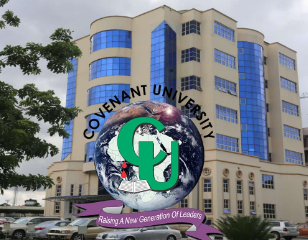

Covenant University, ABU named Nigeria’s Best University in 2025. See List…
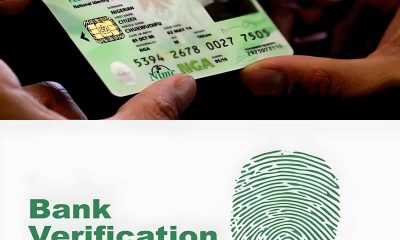

Amid challenges, World Bank gives Nigeria’s NIN registration pass mark


Cash transfers can save Nigerians from falling deeper into poverty – World Bank
Trending

 Entertainment6 days ago
Entertainment6 days agoSimi addresses resurfaced 2012 tweets amid online backlash

 Health1 week ago
Health1 week agoSCFN, LUTH introduce bone marrow transplants as curative treatment for sickle cell

 Health4 days ago
Health4 days agoDeclassified CIA memo explored concealing mind-control drugs in vaccines

 Football1 week ago
Football1 week agoHarry Kane nets brace as Bayern edge Frankfurt 3–2 to go nine points clear

 Crime5 days ago
Crime5 days agoSenior police officers faces retirement after Disu’s appointment as acting IGP

 Football1 week ago
Football1 week agoLate Flemming header stuns Chelsea as Burnley snatch 1–1 draw at Stamford Bridge

 Education6 days ago
Education6 days agoPeter Obi urges JAMB to address registration challenges ahead of exams

 Crime1 week ago
Crime1 week agoTwo killed, seven injured in early-morning shooting in Richmond’s Shockoe Bottom

